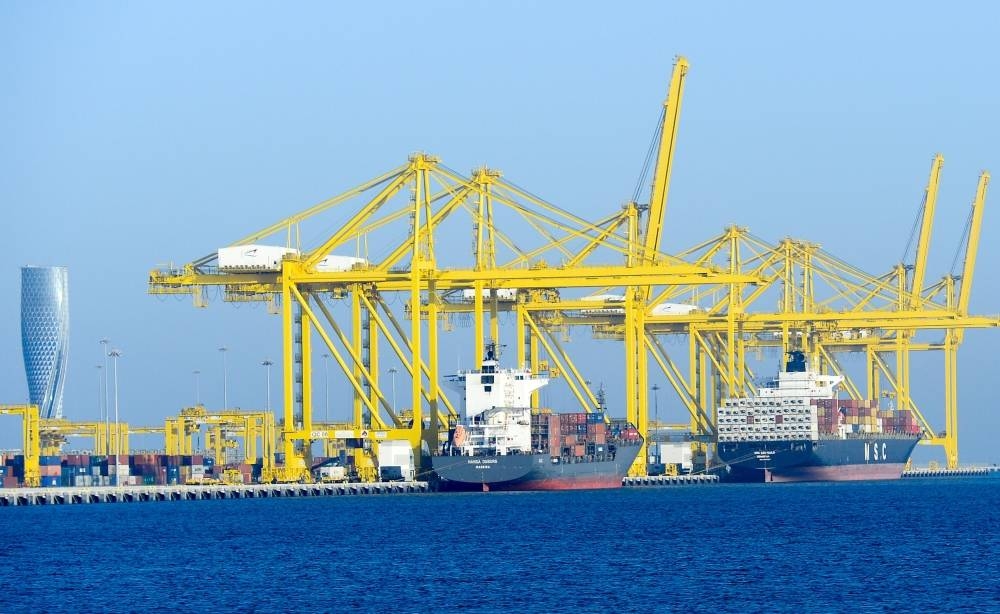Qatar's merchandise exports have been forecast to total $115bn this year and nearly $138bn in 2027, FocusEconomics said in its latest update.
Merchandise trade balance, the researcher said may total $81.6bn this year and nearly $98bn in 2027.
The country’s merchandise exports next year have been forecast at $111.8bn, $113.3bn (2025) and $123.6bn (2026).
Merchandise imports have been forecast at $33.8bn this year, $36bn (2024), $36.4bn (2025), $37.9bn (2026) and $40.2bn (2027).
Merchandise trade balance, FocusEconomics said, may total $75.8bn (2024), $76.9bn (2025) and $85.7bn (2026).
Qatar’s GDP, the researcher noted, may total $222n this year, $224bn (2024), $243bn (2025), $261bn (2026) and $281bn (2027).
GDP per capita has been forecast at $84,955 this year, $86,403 (2024), $94,700 (2025), $102,659 (2026) and $111,860 (2027).
Economic growth has been forecast at 2.6% this year and next, 5.3% (2025), 4.9% (2026) and 4.6% (2027).
Qatar’s fiscal balance (as a percentage of GDP) has been forecast at 7.5% this year, 5.4% (2024), 5% (2025), 6.9% (2026) and 6.7% (2027).
Public debt (as a percentage of GDP) has been forecast at 41.1% this year, 42.6% (2024), 40.7% (2025), 39.7% (2026) and 37% (2027).
Current account balance (as a percentage of GDP) may reach 17.9% this year, 15% (2024), 10.9% (2025), 16.1% (2026) and 18.3% (2027).
Current account balance may total $39.8bn this year, $33.6bn (2024), $26.5bn (2025), $42bn (2026) and $51.4bn (2027), FocusEconomics said.
The economy likely expanded strongly in the fourth quarter (Q4) as the hospitality sector was boosted by the FIFA World Cup; the country welcomed over 1.2mn visitors in November-December, around double the number of arrivals in the whole of 2021.
But energy output tumbled in December following strong growth in November. Moreover, the completion of World Cup-related projects tempered construction activity, and public-sector output will have been restrained by the temporary reduction in school and government office hours.
Turning to this year, the economic picture remains divergent between sectors. On one hand, the tourism industry remains in rude health, with visitor arrivals up close to 350% year-on-year in January-February.
On the flipside, building permits declined in annual terms in the same two months, likely linked to the end of the World Cup and higher interest rates.
The economy will lose steam this year as the boost from the World Cup fades, building activity slows, borrowing costs rise and external demand flags, FocusEconomics said.
That said, ongoing gas sector development and a stronger tourism industry will provide support. Improved relations with Arab neighbours are an upside risk.
FocusEconomics panellists see a 2.6% rise in GDP during 2023, which is unchanged from last month’s forecast, and 2.6% growth in 2024.
Inflation rose to 4.4% in February from 4.2% in January. Meanwhile, the Qatar Central Bank hiked its policy rates by 25 basis points in March, in line with the Fed, with the lending rate rising to 5.75%.
In 2023, FocusEconomics panellists see inflation moderating from last year as borrowing costs rise and commodity prices recede. FocusEconomics panellists see inflation averaging 3% in 2023, which is unchanged from last month’s forecast, and 2% in 2024.
Business
Qatar's merchandise exports forecast to total $115bn this year, nearly $138bn in 2027: FocusEconomics

Qatar's merchandise trade balance may total $81.6bn this year, according to FocusEconomics.

